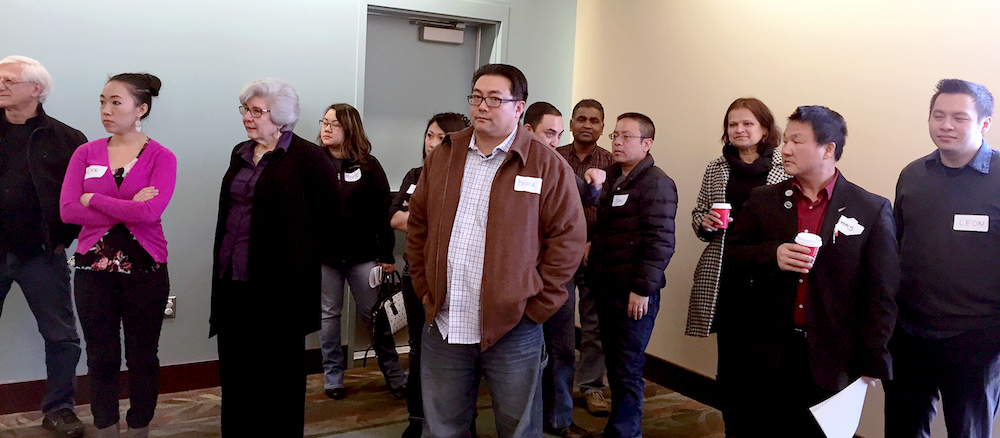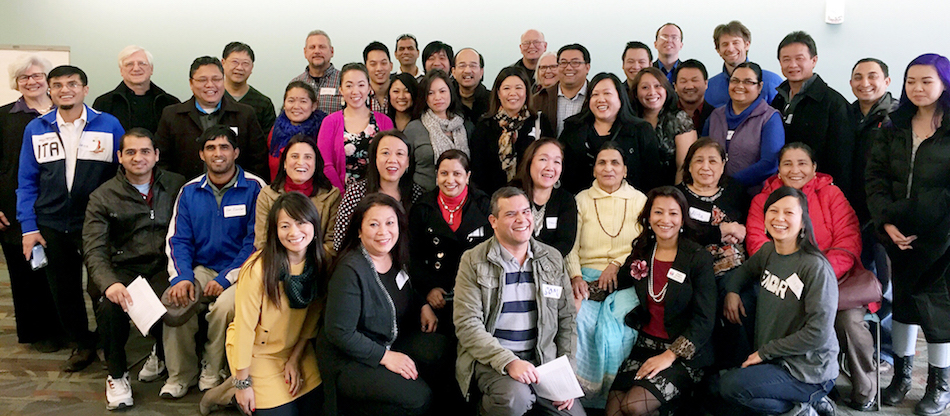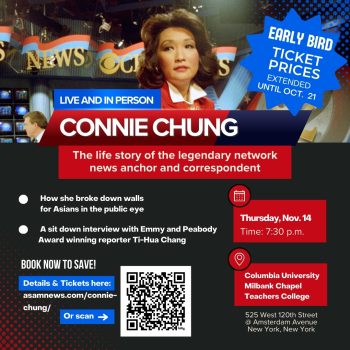
For most of us, the concept of a caucus is something we may hear about in the news, but have never participated in.
The first caucus/primary of the season will take place Monday in Iowa.
Bindiya Nepal came to Des Moines recently with her mother and older sister to join about 60 other Asian Americans and Pacific Islanders to train to participate in that caucus. It was the first ever AAPI caucus training session.
“All three of us are new Americans naturalized in the last year,” she said. “Without this training we have no clue what a caucus is and why we should participate. This training was incredibly helpful to us in helping us understand this new right we have as New Americans.”
Although Iowa is a small state, because it is holding the first caucus in the country, it is getting a disproportionate amount of attention. Of the 60 who participated in the AAPI caucus training, only four had ever participated in a caucus before.
This makes training sessions like this one that much more important. According to APIAVote, the Asian population in Iowa has grown over 72% since 2000. The Native Hawaiian and Pacific Islander population has grown a rapid 172% over the same period.
“There have been many caucus trainings around Iowa in the last few months, however sometimes our community members don’t know about them, don’t feel comfortable attending with the fear of not understanding, or not feeling a sense of belonging,” said Sanjita Pradhan, Executive Officer at the Office of Asian and Pacific Islander Affairs in the Iowa Department of Human Rights.
“It is without a doubt that it has to be a grass-roots effort and AAPI community leaders must be leading that charge. It is only when we unite can we make significant progress… ultimately to ensure our voice will be heard and valued,” said Nu Huynh, Executive Director of Iowa Asian Alliance.

A caucus is a throw back to the days when folks would gather in town halls and actually make decisions. It’s impractical for a state like California, but in smaller states, folks from each political party meet in Caucuses to vote for their presidential candidates. Caucuses are held in small groups around the state.
Democratic front runner Hillary Clinton is mustering all the strength she has to try to stem a stronger than expected challenge from Bernie Sanders.
On the Republican side, Donald Trump hopes to hold back Ted Cruz and further solidify his status as the front runner in the GOP race.
In partnership with the Iowa Asian Alliance and the Iowa Department of Human Rights, APIAVote organized the training session. Participants engaged with other trainees and moved around the room just like they would at the caucuses. Trainees were also given information about the importance of the caucuses, the role of delegates at the conventions and how to keep engaged throughout the political season.
“Engaging emerging AAPI populations in states like Iowa is a core part of APIAVote’s strategy to ensure AAPI voices and issues are heard in every part of the United States, said Christine Chen, executive director of APIAVote. “The enthusiasm to which this caucus training was received only further demonstrates the need for engaging our communities with the political process—even where AAPI voters and voices receive little attention.”
(Note from Editor: An earlier version of this story misidentified APIAVote. We regret the error.)


